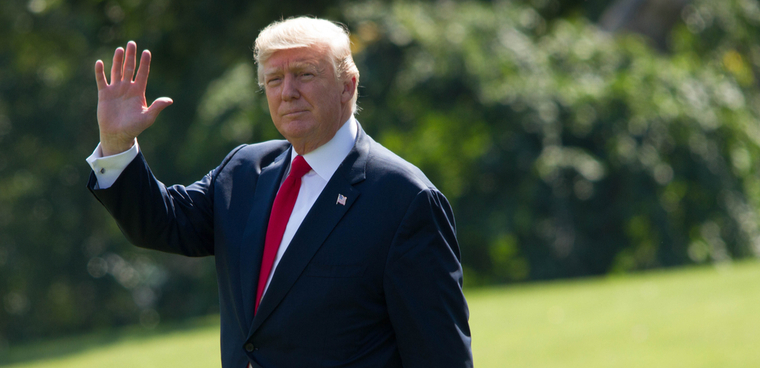Commerce will revisit ZTE sanctions at Trump's request
The U.S. government will revisit harsh sanctions against Chinese telecom firm ZTE, despite years of complaints by U.S. officials that the communications giant violates trade laws and may facilitate Chinese espionage.

President Trump tweeted that he wants to ease sanctions on Chinese telecom manufacturer ZTE, and the Commerce Dept. is taking action.
Secretary of Commerce Wilbur Ross confirmed that his department was reviewing harsh sanctions on Chinese telecommunications giant ZTE after President Donald Trump tweeted Sunday that he had "instructed" the department to do so following discussions with Chinese President Xi Jingping.
"ZTE did do some inappropriate things, they've admitted to that," Ross said during a May 14 luncheon at the National Press Club in Washington. "The question is, are there alternative remedies to the one that we originally put forward? And that's the area we will be exploring very, very shortly."
Last year, Commerce hit ZTE with $1.19 billion in fines for selling telecommunications equipment to Iran and North Korea in violation of U.S. trade sanctions. Part of that agreement included a requirement for ZTE to be completely truthful in future interactions with U.S. officials.
As a sign of commitment to fully cooperate and head off a seven-year ban, company officials had twice promised in 2016 that they had "self-initiated" disciplinary actions against 39 employees who had been involved in the schemes. However, ZTE did not officially send out letters of reprimand for the employees until March 2018, a month after Commerce officials followed up on the matter, according to the denial order. All but one of the employees received their 2016 bonus.
"A number of the statements that ZTE had made to us were simply inaccurate and were not correct, both during the negotiations and after," said Ross.
That led to the April 16 order cutting off ZTE from access to the U.S. supply chain. The company announced shortly after that it would be ceasing operations, and Trump's tweet indicates the topic was a sore spot during recent discussions with President Jingping.
Intelligence and national security officials have long sounded the alarm that ZTE products are susceptible to espionage by the Chinese government. A 2012 report by the House Intelligence Committee found the company was evasive and noncooperative regarding questions about its ties to the Chinese government and recommended that U.S. government systems and contractors "should exclude ZTE…equipment from their systems."
More recently, a report by the U.S.-China Economic Security Review Commission alleged that Bejiing has been strategically positioning local companies at the nexus of the U.S. IT and communications supply chain. Just last week, a Pentagon spokesperson told FCW the military banned the sale of ZTE products on military exchange stores and concessionaires "given the security concerns associated with these devices, as expressed by senior U.S. intelligence officials."
High-level political intervention in such a case may be unprecedented, former senior Commerce official Kevin Wolf told the Financial Times. "I'm highly confident that a [U.S.] president has never intervened in a law-enforcement matter like this before," Wolf told the newspaper. "It's so outside the way the rules were set up."
In response to questioning about whether the reversal could undermine long-standing efforts by military and intelligence officials to clamp down on ZTE, Ross said he had "great respect" for national security agencies but suggested there was more to the story than had been publicly reported.
"The president and I and the rest of the cabinet get very detailed briefings every day, and so I can assure you, we know even more about the situation than the leaks would let on," Ross said. However, he followed that up by saying "the part that would be interesting is classified."





